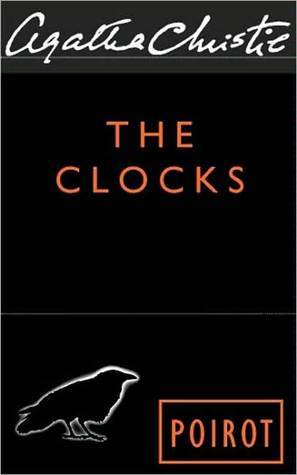More on this book
Community
Kindle Notes & Highlights
it all sounded very cosy.
‘An elderly man about sixty,
I don’t hold with the Common Market and nor does Mr Curtin. England’s good enough for me.’
—here, my dear Colin, is The Leavenworth Case.’ He handed the book to me. ‘That’s going back quite a long time,’ I said. ‘I believe my father mentioned that he read it as a boy. I believe I once read it myself. It must seem rather old-fashioned now.’ ‘It is admirable,’ said Poirot. ‘One savours its period atmosphere, its studied and deliberate melodrama.
‘Then we will take the Adventures of Arsene Lupin,’ Poirot went on. ‘How fantastic, how unreal. And yet what vitality there is in them, what vigour, what life! They are preposterous, but they have panache. There is humour, too.’
‘And there is The Mystery of the Yellow Room. That—ah, that is really a classic! I approve of it from start to finish. Such a logical approach! There were criticisms of it, I remember, which said that it was unfair.
‘Definitely a masterpiece, and, I gather, almost forgotten nowadays.’
‘I have read also,’ he said, ‘some of the early works of Mrs Ariadne Oliver. She is by way of being a friend of mine, and of yours, I think. I do not wholly approve of her works, mind you. The happenings in them are highly improbable. The long arm of coincidence is far too freely employed. And, being young at the time, she was foolish enough to make her detective a Finn, and it is clear that she knows nothing about Finns or Finland except possibly the works of Sibelius. Still, she has an original habit of mind, she makes an occasional shrewd deduction, and of later years she has learnt a good
...more
‘What about the tough school?’ I asked. Poirot waved aside the tough school much as he would have waved an intruding fly or mosquito. ‘Violence for violence’ sake? Since when has that been interesting?
Tout de même, I give American crime fiction on the whole a pretty high place. I think it is more ingenious, more imaginative than English writing. It is less atmospheric and over-laden with atmosphere than most French writers.
‘The Adventures of Sherlock Holmes,’ he murmured lovingly, and even uttered reverently the one word, ‘Maître!’ ‘Sherlock Holmes?’ I asked. ‘Ah, non, non, not Sherlock Holmes! It is the author, Sir Arthur Conan Doyle, that I salute. These tales of Sherlock Holmes are in reality far-fetched, full of fallacies and most artificially contrived. But the art of the writing—ah, that is entirely different. The pleasure of the language, the creation above all of that magnificent character, Dr Watson. Ah, that was indeed a triumph.’
‘Ce cher Hastings. My friend Hastings of whom you have often heard me speak. It is a long time since I have had news of him. What an absurdity to go and bury oneself in South America, where they are always having revolutions.’
There is a most interesting sale of authors’ manuscripts next week—’ ‘Still on your hobby?’ ‘But, yes, indeed.’ His eyes brightened. ‘Take the works of John Dickson Carr or Carter Dickson, as he calls himself sometimes—
I was in no mood to listen to lectures on past masters of the art of crime fiction.
We’ve all got our weak places. Mine were different from Sheila’s but they were there.
One comes almost to regard actual crimes in the light of fiction. That is to say that if I observe that a dog has not barked when he should bark, I say to myself, “Ha! A Sherlock Holmes crime!” Similarly, if the corpse is found in a sealed room, naturally I say, “Ha! A Dickson Carr case!” Then there is my friend Mrs Oliver. If I were to find—but I will say no more.
here is the setting of a crime in such wildly improbable circumstances that one feels at once, “This book is not true to life. All this is quite unreal.” But alas, that will not do here, for this is real. It happened. That gives one to think furiously, does it not?’
‘It is, as it were, the opposite of Chesterton’s, “Where would you hide a leaf? In a forest. Where would you hide a pebble? On a beach.” Here there is excess, fantasy, melodrama! When I say to myself in imitation of Chesterton, “Where does a middle-aged woman hide her fading beauty?” I do not reply, “Amongst other faded middle-aged faces.” Not at all. She hides it under make-up, under rouge and mascara, with handsome furs wrapped round her and with jewels round her neck and hanging in her ears.


